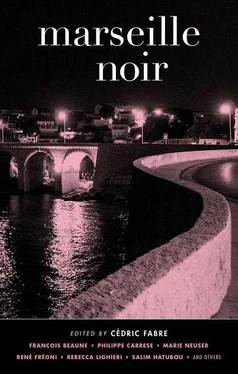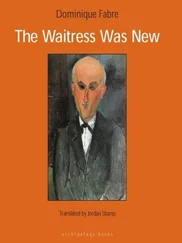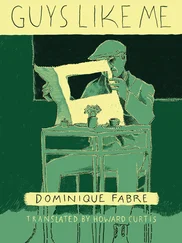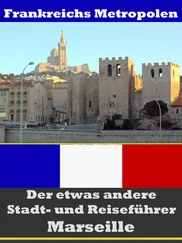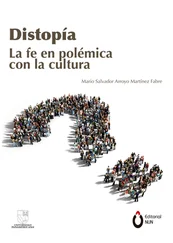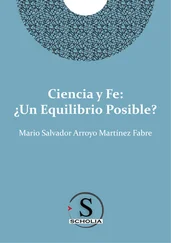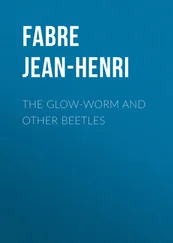Cédric Fabre - Marseille Noir
Здесь есть возможность читать онлайн «Cédric Fabre - Marseille Noir» весь текст электронной книги совершенно бесплатно (целиком полную версию без сокращений). В некоторых случаях можно слушать аудио, скачать через торрент в формате fb2 и присутствует краткое содержание. Год выпуска: 2015, Издательство: akashic books, Жанр: Крутой детектив, на английском языке. Описание произведения, (предисловие) а так же отзывы посетителей доступны на портале библиотеки ЛибКат.
- Название:Marseille Noir
- Автор:
- Издательство:akashic books
- Жанр:
- Год:2015
- ISBN:нет данных
- Рейтинг книги:5 / 5. Голосов: 1
-
Избранное:Добавить в избранное
- Отзывы:
-
Ваша оценка:
- 100
- 1
- 2
- 3
- 4
- 5
Marseille Noir: краткое содержание, описание и аннотация
Предлагаем к чтению аннотацию, описание, краткое содержание или предисловие (зависит от того, что написал сам автор книги «Marseille Noir»). Если вы не нашли необходимую информацию о книге — напишите в комментариях, мы постараемся отыскать её.
Marseille Noir — читать онлайн бесплатно полную книгу (весь текст) целиком
Ниже представлен текст книги, разбитый по страницам. Система сохранения места последней прочитанной страницы, позволяет с удобством читать онлайн бесплатно книгу «Marseille Noir», без необходимости каждый раз заново искать на чём Вы остановились. Поставьте закладку, и сможете в любой момент перейти на страницу, на которой закончили чтение.
Интервал:
Закладка:
But do I have the right to dream? I’m a murderer.
I began to read Confucius — I’m trying to learn how to be really Zen. Luckily, it’s a very thin book with a hard cover, the better to resist the treatment I inflict on it daily. “Silence is a friend that never betrays you,” said the Chinese sage. So I keep silent.
The Swede I mentioned, my new neighbor, had moved to Marseille to train the new ice hockey team and had a hobby that seemed likeable at first: he loved the tango. So much so he played tangoes on his violin from morning to night on the days he wasn’t on the ice. Everything went fine for a few months. But when his team started losing, he began to play out of tune. Terribly out of tune. And very, very late.
So last night, with my nerves completely on edge, at two thirty in the morning, despite my close acquaintance with Confucius, I went over to explain that he’d better stop his music. I put my book in my pocket and felt the cover. It seemed good and solid. I’m sure you understand.
Silence is a friend that never betrays you.
THE DEAD PAY A PRICE fOR THE LIVING
by RENÉ FRÉGNI
Château-Gombert
Murder is not what I want to talk about. I want to speak of joy, suffering, and love. — Knut Hamsun
When I look at dogs, I miss wolves. — Victor Hugo
I didn’t come back to the suburb where I grew up to pick olives. I came back to kill a man.
I’m going to crush that man like a rat. He is a rat. He was my childhood friend.
During the eight years I’ve just spent behind bars, he took everything from me. All my savings and the little money my mother left me. I invested everything in that restaurant with him, without even going through a lawyer. I thought he was my brother. A brother. he took my wife.
At first she’d come to see me three times a week in the visiting room of Baumettes prison, then twice. After eighteen months, she only came on Saturday afternoons with clean laundry and three St. Victor cookies. She would stare at her hands; I didn’t touch her anymore. A quick kiss on the cheek. She could hardly wait for the guard to show up so she could rush back into the street a half hour later.
After the trial, she stopped coming altogether. I was transferred to the penitentiary in Arles. That’s where I learned she was sleeping with him. I beat the hell out of a guard and they dragged me off to the hole. I lost six pounds and the little confidence I had in human beings.
For years, I killed that man every single day. I would imagine them together. I could hear her moaning and shouting the way she did with me for almost ten years. She would fall asleep against that man’s belly and thighs. A breast in that man’s hand, the left breast, she only falls asleep on her right side. For years, I loved to fall asleep with that pretty breast in the cup of my palm. She disgusts me.
As for him, I killed him mornings, afternoons, evenings, and especially at night, in my dreams, in my nightmares, with my eyes wide open in the darkness of my cell, lit only by the searchlights shining on the outside walls.
I grew up with that man, on the same street, in the same school, we ran side by side through the same hills, in the same playgrounds, we kissed our first girls together on the sand of les Catalans Beach. He beat me at foosball a hundred times, I slaughtered him a hundred times at boccie. We never stopped laughing, even on that day when we were fifteen, hiding together in a garbage can with the cops on our ass. As soon as I turned my back, he took everything from me. I’m going to crush him like a rat!
I found this job so I could spy on him and kill him whenever I decide to. I want to see terror filling his eyes and twisting his guts, see how much he regrets his mistake before he disappears.
All day I pick olives, a stone’s throw from the village. We always called this suburb of Marseille “the village.” It’s not like any other neighborhood. When I was a kid, there used to be over a hundred truck farmers here; there must be only two or three left. Château-Gombert has remained a village curled around its church.
At noon, I have the day’s special at a café right across from our restaurant. I still dare to say “our”. Alone at my little table, hidden behind a curtain, I watch. Nobody can recognize me. I wear a cap, glasses, and a mustache. I tell the young waitress I’m picking olives on chemin de Palama.
My hands are red with cold and scraped by branches. From time to time, I see someone I knew in school come in, a shopkeeper, a troublemaker. They don’t even notice me. I could be Portuguese, Moroccan, a seasonal worker. Who still picks olives here? Aside from poets and madmen. All my old buddies are hiding out in the city or selling drugs and anything that falls off a truck.
On my street, nobody made it and nobody gives a damn. “Take it easy. ” That’s what they’ve been saying from morning to night ever since they were born, with a pair of boccie balls in their hands. “Take it easy. ” Their fathers used to say it, their grandfathers too, in every bar in Marseille. You can hear the clack of boccie balls all around the memorial to the war dead and, for some time now, behind the church, where we used to fight over Lui, Playboy, and Penthouse when we were twelve, all those blond girls perched on their high heels or leaning forward under the weight of their heavy breasts that made our pants tight and our mouths dry.
I came upon the ad last week in La Provence. Mademoiselle Niozelles was looking for someone to pick her olives in Château-Gombert. The name jumped out at me like a cat: Château-Gombert. I jumped on my bike and was the first to arrive. It wasn’t even eight in the morning.
We decided to share the crop. That’s what’s been done here forever. Mademoiselle Niozelles is a widow, but she’s still young. She would have given me ideas if I hadn’t come here with five years of hate in my belly. She’s a schoolteacher who owns about a hundred olive trees around her little pink house with a dovecote next to it. We had coffee in her kitchen. There is a lot of discretion and sensitivity in her eyes. She didn’t ask me a single question. I had the feeling she could see my life palpitating under my skin. Her students must love her. She’s calm and luminous like this month of November.
I got to work the same day. I hung a basket around my neck, on my belly, and we went to get a little ladder under a shed before she left for school.
“It’s a very good year,” she said as she walked away, “I don’t remember seeing so many for ages. It must’ve rained at the right time.”
I like that expression she uses, belle lurette, “for ages.” I didn’t think a teacher would use it. Mademoiselle Niozelles doesn’t look like a teacher, she’s like wild grass. She’s like no one else.
The olive trees are planted on narrow terraces held up by little walls made of stones as white as bones. They’re literally collapsing under the weight of the olives, as if to say, Give us some relief, we can’t take it anymore.
They’re still green, full of water, hard, and so strongly attached to the branches that you have to really tug to get them to cascade down into the basket. They’re Aglandau olives, perfectly oval. On the trees with the best exposure, they’re already purple, you can see the oil under the skin. I notice that a little farther on they’re as big as plums. I’ll keep those for the days when I’m tired or the mistral is blowing. I’m going to pick all these olives and then I’ll kill the man who filled my blood with poison.
I watch the sun turn around the village. It’s a fine day, calm and blue. From here, in the midst of the hills, all the houses are golden. I spot the façade of the one I grew up in, the windows of the kitchen and our bedroom. I say “our” because I slept in my parents’ room for a long time and so did my sister. I liked to sleep near my mother’s breath. Who now lives in that house where I was so happy?
Читать дальшеИнтервал:
Закладка:
Похожие книги на «Marseille Noir»
Представляем Вашему вниманию похожие книги на «Marseille Noir» списком для выбора. Мы отобрали схожую по названию и смыслу литературу в надежде предоставить читателям больше вариантов отыскать новые, интересные, ещё непрочитанные произведения.
Обсуждение, отзывы о книге «Marseille Noir» и просто собственные мнения читателей. Оставьте ваши комментарии, напишите, что Вы думаете о произведении, его смысле или главных героях. Укажите что конкретно понравилось, а что нет, и почему Вы так считаете.
